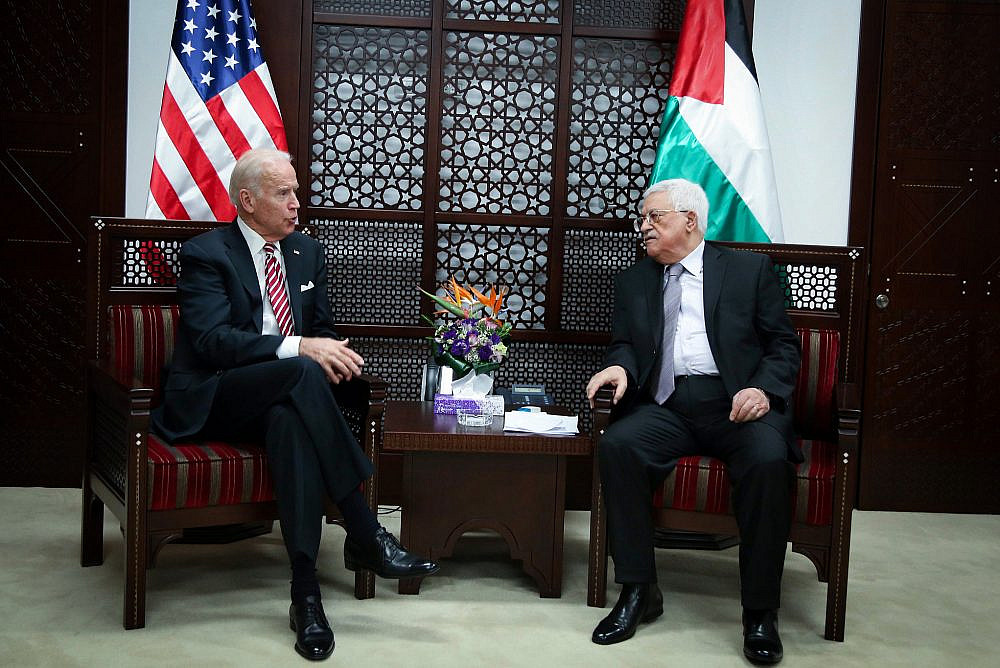The victory of Joe Biden, the candidate of the Democratic Party in the 2020 US presidential elections, has raised many questions as to his politics towards the issues of the Middle East. Hassan Hanizadeh, expert of international relations told the Strategic Council on Foreign Relations that Joe Biden’s victory remains in limbo as Donald Trump refuses to concede defeat in the November elections. Hanizadeh said when election results are out officially and Biden enters the While House, fundamental changes shall take place in the US tactics in the Middle East.
“The first issue which is going to be spotlighted by Biden would be the issue of Palestine and the establishment of an independent Palestinian state with Beitul-Muqaddas as its capital. As it is supposed that any incoming president of the United States makes commitments before victory in the elections to the Zionist lobby to prioritize the security of the Israeli regime, Biden would be no exception,” Hanizadeh added.
He said Biden and the US vice-president Kalama Harris have openly declared that they are in fact the zealous supporter of the Zionist regime and therefore they should heed, as a matter of priority, the interests of the Zionist regime and avoid swaying away from the boundary defined exclusively for the Israeli regime.
Hanizadeh said the tactical approach of Biden would be fundamentally different from Trump’s, adding that the Biden team will be seriously concerned with the issue that the Arab-Israeli conflict will not end without the formation of an independent Palestinian state as well as the issue of recognition of the geographical area and capital city of an independent Palestinian state.
According to Hanizadeh, even if a government is formed under the title of Palestine, it will be lacking defensive and military tools.
He said Biden believes that negotiations between Palestine and Israelis should resume and both parties should reach a common approach for the future of Palestine.
“Perhaps, the sudden demise of Saeb Erekat, the chief Palestinian negotiator in one of Israel’s hospitals only one week before the victory of Biden is related to the Biden’s approach towards the necessity of the establishment of an independent Palestinian state.
Erekat, 65, died on 10 November 2020. He was the chief negotiator of the Palestinian delegation from 1993 when the Oslo Accord was signed in Washington between the Fatah movement and the Zionist regime. He was a staunch supporter of the establishment of an independent Palestinian state.
Referring to the issue of Saudi Arabia as another important priority for the Biden team, Hanizadeh said Riyadh would certainly lose its current status in the region and the world when Biden starts work in the White House.
“Saudi Arabia will be facing a series of dramatic changes in the near future. It will lose its status among the regional and global countries. During the past four years, due to its alignment with the policies of Donald Trump, the defeated president of the United States, Saudi Arabia has played a totally destructive role in regional developments in the Middle East. The multi-billion-dollar arms deals with Trump, the heartrending murder of journalist Jamal Khashoggi, the all-out war against the defenceless people of Yemen and violation of human rights in Saudi Arabia are parts of the files to be considered by the Biden team in the near future.”
According to Hanizadeh, Biden believes that Mohammad bin Salman, the Saudi Crown Prince who is now under prosecution by an American federal court for the murder of Jamal Khashoggi, is incompetent to lead Saudi Arabia. Moreover, Biden had criticized the destructive role of Saudi Arabia in the region during his election campaigns. The US President-elect also believes that bin Salman should be deposed of power and be replaced by former Crown Prince Mohammad bin Nayef.
Hanizadeh said we should expect fundamental changes during the next 12 months in the structure of power and governance in Saudi Arabia, adding that bin Salman is therefore trying hard to withdraw from the quagmire of Yemen in a face-saving manner.
“Turkey is another country which is going to be under the spotlight of Biden after entering the White House. I believe that Biden would impose maximum pressure on the government of Turkish President Recep Tayyip Erdogan; therefore, Turkey, from the viewpoint of Biden should cut its links with the terrorists in Syria and stop its intervention in Libya,” he said, adding that Turkey will be facing tough times in the future.
Referring to Afghanistan, Hanizadeh said Biden may not be abiding by the peace agreement between the Taliban and the Trump administration signed in Qatar and would not be interested in cooperating with the Taliban.
“Therefore, it would be normal for American forces to remain in Afghanistan with the goal of controlling and surveying some countries in the region.”
Asked about Iraq, Hanizadeh said, “Biden would make efforts to divide Iraq into three areas for the Kurds, Shias and Sunnis because when he was the chair of the Foreign Relations Committee of the US Senate, he presented a motion to disintegrate Iraq into three districts.”
Hanizadeh added that the first step taken by Biden in Iraq will highly likely focus on preparations for the independence of the Kurdistan territory. “However, such an effort would cause criticism and opposition from inside Iraq as well as most countries in the region and across the globe, turning it into a dream for Biden and his administration.”










0 Comments